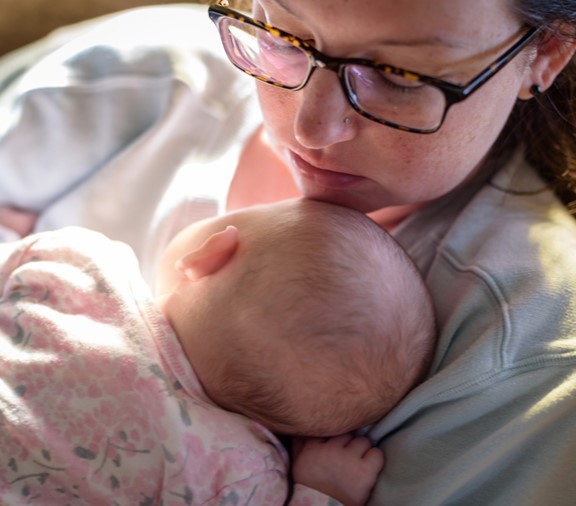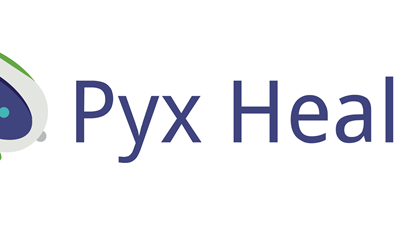
10 Health Tips for First-Time Mothers
July 6, 2021
After those long months of pregnancy, your baby is here at last!
As you adjust to life with your little one, you may feel overwhelmed at times.
Take a look at the tips below for ideas to ease the first few weeks and months of motherhood.
Accept help
You might want to do everything for your new baby. But if your loved ones offer help—accept it.
Whether it’s holding the baby while you take a shower or making meals for you, there are many ways that others can lend a hand.
Let them!
Get as much rest as possible
Your body is recovering from pregnancy and childbirth. Your baby may need more hours of care each day than you expected.
You are making many changes to your daytime—and nighttime—routines.
Your body and mind need rest. Get as much sleep as you can, including naps and “dozing” on the couch.
Set a routine for your baby
Most newborns sleep up to 17 hours a day. However, they sleep only one to two hours before they wake—needing to eat, get a fresh diaper, and enjoy your attention.
Need help settling your baby to sleep? The American Academy of Pediatrics offers a variety of tips. You can read them here.
Eat nutritious meals
When you eat good food, you sleep, think, and feel better. Good foods include fresh fruits and vegetables and other items low in fat and high in fiber and important nutrients.
If you need help getting groceries, check out the Women, Infants, and Children (WIC) Program.
WIC helps you buy food and formula and offers free classes and one-on-one nutrition counseling.
For more information or to apply, visit texaswic.org.
Stay hydrated
As a new mom, you should be drinking plenty of water. This is especially true if you are breastfeeding.
But don’t wait until you are thirsty. By then, you are already dehydrated.
Sip water throughout the day and evening. Pack a water bottle for yourself in the baby’s diaper bag. Make it part of your new routine and before long, you will reach for water instead of soda or caffeinated drinks.
Consider breastfeeding
If you can, breastfeed your baby.
When you breastfeed, you help to protect your baby from illness.
According to the Office on Women's Health, breastfed babies have lower risks of asthma, childhood obesity, and ear infections—among many other health problems.
For tips on how to get started and to get answers to your questions about breastfeeding, visit womenshealth.org.
Know the signs of postpartum depression
“Postpartum depression” is depression many women have after giving birth.
You might have postpartum depression if you:
- feel extreme anxiety but don’t know why
- have little interest in things you used to enjoy
- feel anxious around your baby
- have scary, upsetting thoughts
- feel like you are failing at motherhood
Be sure to let your doctor know about these feelings right away.
You can also call your health plan’s toll-free behavioral health line.
- STAR/CHIP: 1-800-945-4644
- CHIP Perinate: 1-888-814-2352
English/Spanish interpreter services available 24 hours a day, 7 days a week
You do not need a referral for behavioral health or substance abuse services. To learn more, visit carelonbehavioralhealth.com.
Learn how to manage your baby’s crying
Newborn babies cry a lot during the first few months of life. You might become very frustrated with this crying, especially if you have not been sleeping well.
You can try to calm your crying baby by:
- rubbing their back
- gently rocking them in your arms
- offering a pacifier
- quietly singing or talking to them
- taking a walk using a stroller
- driving around the block with the baby in a properly-secured car seat
Whatever you do, no matter how frustrated you feel, do not shake your baby.
Some new mothers calm themselves by talking to a loved one.
You can also call the behavioral health line. This benefit is provided at no cost to you.
Call anytime you need to talk about your baby’s crying or your feelings during your first few months as a new mom.
- STAR/CHIP: 1-800-945-4644
- CHIP Perinate: 1-888-814-2352
For more helpful tips to help you manage your baby’s crying, visit the National Center on Shaken Baby Syndrome at dontshake.org.
Get out of the house
Fresh air and exercise can do wonders for new moms—and their new babies.
Are you going stir-crazy in the house? Take the baby out for a walk during the cooler hours of the day.
If you need some alone time, that’s fine, too. Ask someone you trust to watch the baby while you take a walk to clear your mind. A little exercise can make you feel a lot better.
Call the free 24-hour Nurse Line
Have an urgent question about your baby’s health, eating, behavior, or other concern?
Call the 24-hour Nurse Line. There is no cost to you for this Parkland Community Health Plan service.
- HEALTHfirst Medicaid STAR: 1-888-667-7890
- KIDSfirstCHIP/CHIP Perinate: 1-800-357-3162




